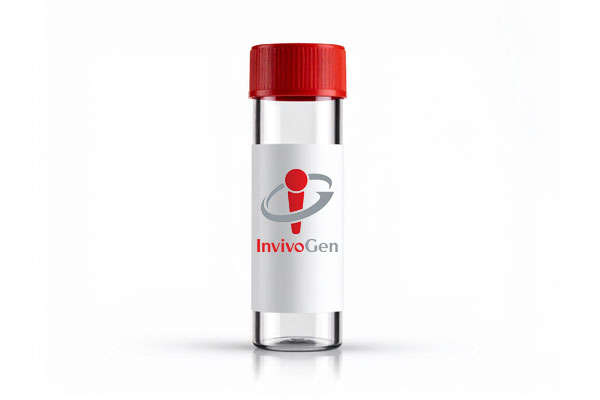
pUNO1-hTLR4a-DN
-
Cat.code:
puno1-htlr4a-dn
- Documents
Expression-ready ORF Clones
Alias : TLR4, CD284
TLR4-DN (ΔTIR) : Dominant Negative TIR-less TLR4 gene
TLR4 is the receptor for Gram- lipopolysaccharide (LPS). The TLR4 gene was shown to be mutated in C3H/HeJ and C57BL/10ScCr mice, both of which are low responders to lipopolysaccharide (LPS) [1].
However, TLR4 alone is not sufficient to confer LPS responsiveness. TLR4 requires MD-2, a secreted molecule, to functionaly interact with LPS [2].
Furthermore, a third protein, called CD14, was shown to participates in LPS signaling, leading to NF-κB translocation. This signaling is mediated through the adaptor protein MyD88 but also through a MyD88-independent pathways that involves the (TIR) domain-containing adapter protein (TIRAP) [3].
TLR4-DN is a TIR-less form of the TLR4 gene generated by deleting the TIR domain (498 bp); This truncated gene is still able to recognize its ligands but is unable to induce the signaling cascade.
1. Poltorak A. et al. (1998). Science, 282(5396):2085-8.
2. Shimazu R. et al. (1999). J Exp Med, 189(11):1777-82
3. Horng T. et al. (2001). Nat Immunol, 2(9):835-41
Specifications
Human TLR4-DN-HA (pUNO1-hTLR4a-DN-HA3x)
ORF size : 2112 bp
Subclone : AgeI - NheI
Mouse TLR4-DN-HA (pUNO1-mTLR4-DN-HA)
ORF size : 2046 bp
Subclone : AgeI - NheI
Contents
- 20 µg of lyophilized DNA
- 2 x 1 ml blasticidin at 10 mg/ml
![]() Product is shipped at room temperature.
Product is shipped at room temperature.
![]() Lyophilized DNA should be stored at -20°C. Upon receipt, store blasticidin at 4°C or -20°C.
Lyophilized DNA should be stored at -20°C. Upon receipt, store blasticidin at 4°C or -20°C.
![]() Resuspended DNA should be stored at -20°C and is stable for up to 1 year.
Resuspended DNA should be stored at -20°C and is stable for up to 1 year.
![]() Blasticidin is a harmful compound. Refer to the safety data sheet for handling instructions.
Blasticidin is a harmful compound. Refer to the safety data sheet for handling instructions.
DOCUMENTS
Documents
Technical Data Sheet
Plasmid Map and Sequence
Plasmid Sequence
Certificate of analysis
Need a CoA ?